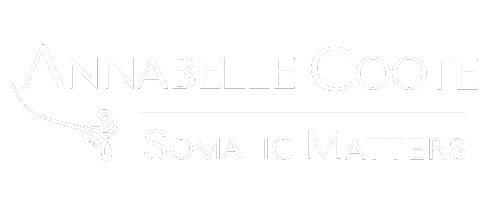I can hide in my head with the best of them.
The story in my family is that I started dancing before I began to walk. As a kid I lived for cartwheels and mud and backbends and dance class! I am more fluent in the language of movement than talking; I would rather complete sentences with gestures than words.
As a somatic therapist, I am eager to work bottom-up, diving into the wisdom of the body and making connections between a gesture and a feeling or an image and a core belief. I am in awe of the seeming magic that happens in experiential work.
I love moments such as helping a client orient to the space around them, scanning the room with their eyes, turning their body to look behind them, relaxing as they feel the comfort and safety of a welcoming environment.
Or when a client learns how to quiet their hyperarousal with cross-body movement, marching and reaching a hand to the opposite knee. As they mobilize their body, they shift their energy, decrease their anxiety, and return to a more regulated state.
Or when someone can get curious with me about the way they keep glancing down to their left as they talk. Together we discover that a spot on the floor feels like a cavernous hole they are afraid they may fall into and get lost in. With this new awareness, a window opens and we can explore their fears through imagery and creativity.
I also thrive on top-down processing. I love thinking. I love ideas. I love chewing on things. Analyzing them, dissecting them, looking at them from many angles. Making connections between disparate ideas. I enjoy sharing concepts and providing psychoeducation. My intellect is an asset and a resource.
But I also can use the world of thinking as a place to escape my own experience. To avoid my own emotions. To shield my vulnerability. To protect the image of me that I would like people to see. I can hide in my head with the best of them.
When thinking gives way to overthinking, the flow between top-down and bottom-up processing gets out of balance. I lose connection with the richness of my emotional experience, and I become less present overall. This happens not only in my personal life, but also in my work as a therapist.
There are a moments in therapy when I feel unsure or hesitant, when I feel uncomfortable taking the risk of following an unknown path into uncharted territory. Sometimes it feels easier or safer to give a lengthy explanation about a concept instead of exploring themes experientially. Other times I want to avoid the awkwardness of asking a client to try something new or different, particularly if they are more comfortable “staying in their head” and I get pulled into an overly intellectual focus.
Intellectualizing is considered a psychological defense, but I think we look at psychological defenses in too harsh a light. Intellectualizing is something we do to avoid emotion and protect against anxiety. Well, sometimes there are good reasons to avoid emotion and protect against anxiety, and intellectualizing might be the best tool we have.
There have been many ways in my life that intellectualizing has been incredibly useful. It has protected me, helped me make sense of chaos and uncertainty, kept me going when I might otherwise have given up on something important, gotten me through painful events, mitigated my experience in ugly circumstances, and lent me sorely needed confidence.
I want to honor the ways that I have used intellectualization to help me. Then, from a foundation of acceptance and self-compassion, I can also recognize when and how it does not serve me. I can get curious about the ways I tend to overthink when I don’t need to and about what other options would support me better.
I am seeking to be more open to my own experience. I have become better at noticing when my emotional tolerance starts to shift from green to yellow and head toward red. I have become more comfortable with my own – and others – vulnerability. The more I am able to remain open and aware of myself, the more effective I become in my relationships. I can be more present. I notice my own mistakes with less judgment, and repair ruptures with more grace and skill. I am more likely to let the creative process unfold and be my guide. I take more risks, experiment more, and have more fun along the way.
So, I don’t want to toss intellectualizing out the window, but I do want to recognize it for what it is, soften it, and work on integrating my thinking self with the rest of me. As a therapist, I am asking myself to do the work that I invite my clients to do. This makes me a better therapist, and a happier human.
I’m a somatic therapist.
And an intellectualizer.
I can hide in my head with the best of them.
But I can also come out to play, and laugh, and cry, and grow.

